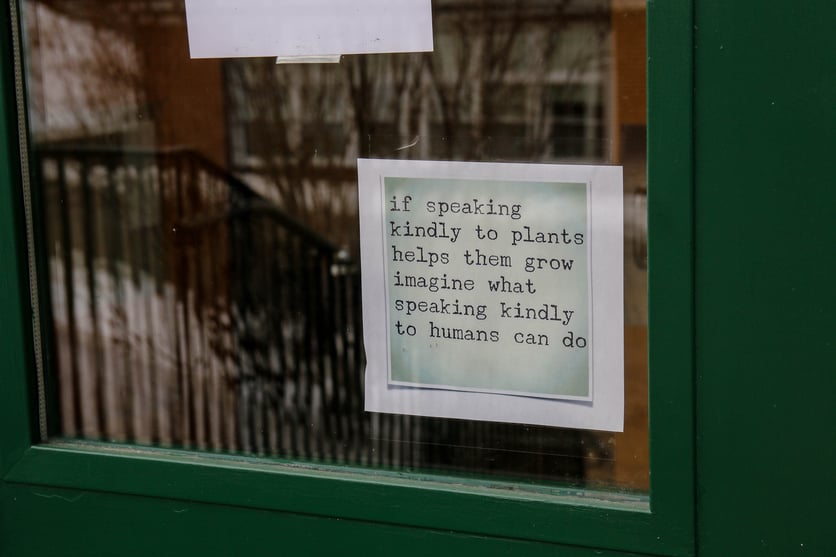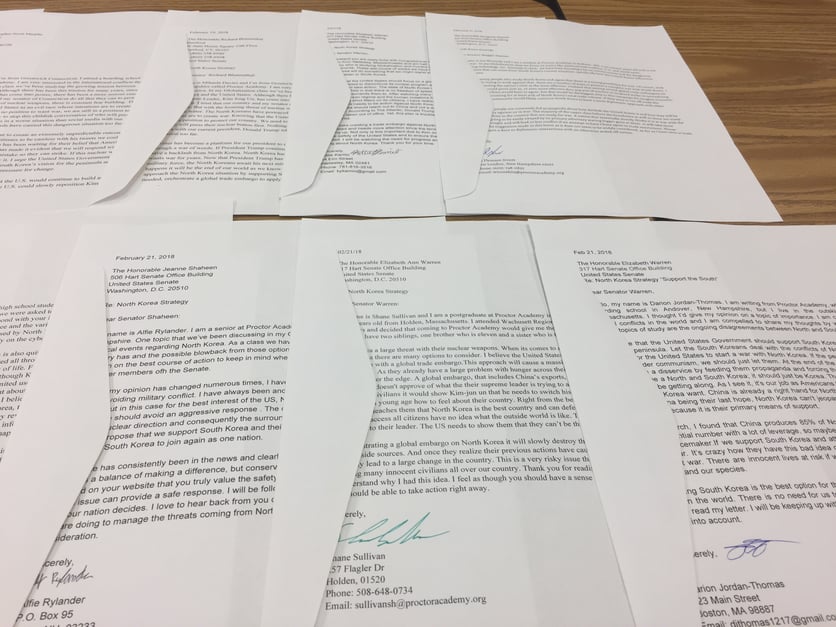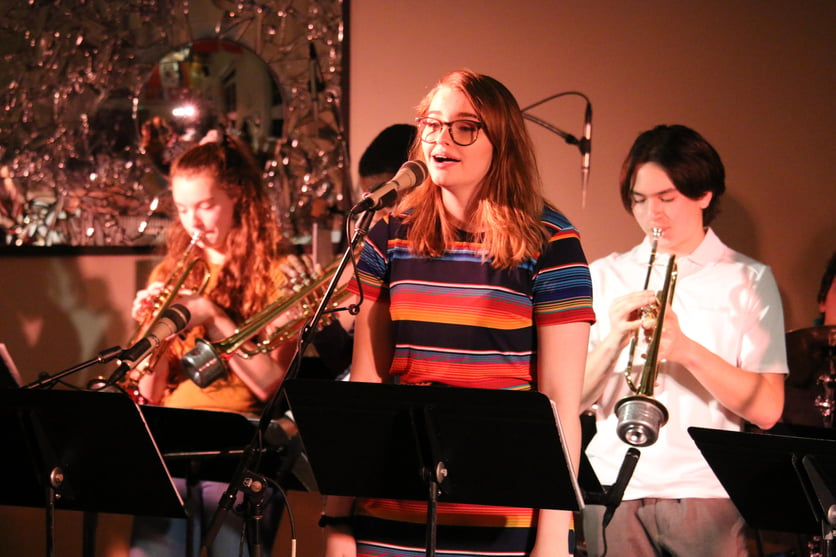Often, when difficult issues arise and injustice brushes our lives in the most personal of ways, we feel empowered to speak our minds. Finding the right medium to be heard is as much a challenge as finding the words to speak. Our responsibility as adults in this learning community called Proctor is to both model and encourage respectful dialogue that challenges the status quo while not compromising the integrity of our relationships with others within the community.

Last week, faculty members Megan Hardie and Derek Nussbaum Wagler stepped in front of our all-school assembly with a transparent vulnerability we so deeply value as a community. Their message just two days after the Parkland school shooting in Florida, and less than twelve hours after a threat of violence was being investigated at Andover Elementary School cut to the core of who we are as a community. As Megan and Derek shared their hearts, grieving for the victims and realizing just how close to home these issues can hit, they implored our school community to help each other find their voices.
Megan pleaded, “What I am so thankful for is that there are students at my daughter’s elementary school who were able to find their voice. You each have that same responsibility here. If someone is struggling, tell someone. If you are struggling, tell someone. You may not be able to vote yet, you may not be able to change legislation, but you can help others find their voice and that is such a powerful responsibility you have been given. Take it seriously and use it.”

Encouraging students to find their voice is a responsibility that transcends all areas of life at Proctor, not the least of which is our classrooms. Nurturing classroom environments that seek to identify real world issues impacting our lives and empowering students to create action steps to affect change are central to our educational mission. Globalization students have been studying the situation in North Korea and in a powerful display of student voices gaining confidence, letters were written to Congressmen/women as a final project.

Globalization teacher, Adam Jones, notes, “The goal of studying North Korea and examining the US Government's options for engagement was primarily about building understanding around the situation from an engaged-citizen perspective. We didn't know (at the start) what we'd do with the knowledge we gained from our study, but after we understood and debated the nuisances of the topic, the idea of writing a letter to members of the US Senate came naturally from the students.” He adds, “The members of our class had something they knew about the topic and how the US should engage with North Korea, and felt that those in power needed to hear their voices.”
Through the research, writing, and rewriting process with other faculty members, family, Learning Specialists, and peers, students felt their refined piece of writing pulled together their position and reasoning in a manner that effectively communicated their ideas to a “real” audience that is in a position to positively affect change.

As we enter this final week of Winter Term exams and reflect on the past trimester, we hope each of our students continues to develop his or her voice in a way that makes our immediate community and the greater world a better place. Perhaps the greatest gift we provide our students is the ability to think for and to speak up for what they believe in. Call it self-advocacy. Call it self-reliance. Call it whatever you want. This ability to think critically about issues, synthesize viewpoints, and articulate beliefs through the written or spoken word remains the single most important skill young people must possess as they leave high school and enter the real world.








